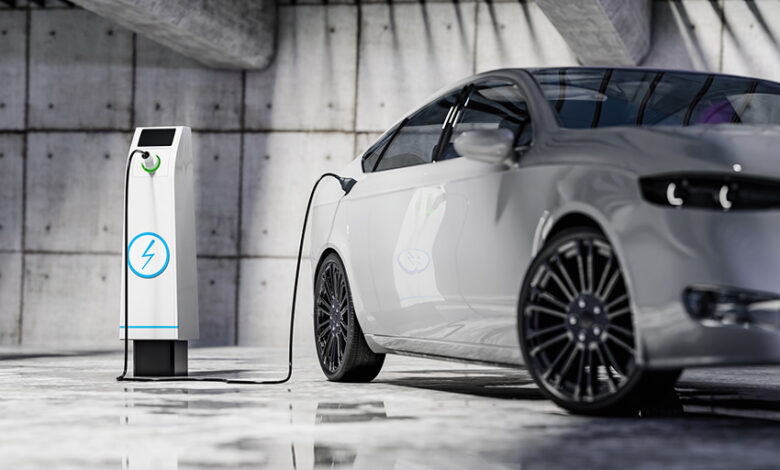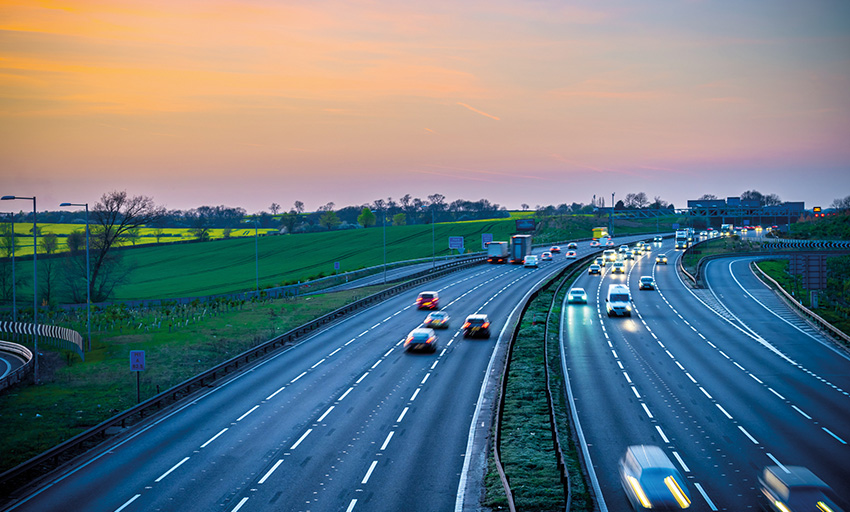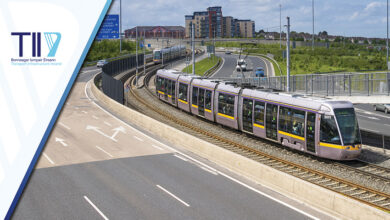Electrification ‘not enough’ to meet transport emissions targets

Ireland’s transport system fosters growing car use and carbon emissions by design, a report has found, further outlining that it is unfit to enable the State to meet its greenhouse gas reduction goals whilst improving wellbeing.
The report, published by the Organisation for Economic Co-operation and Development (OECD), reports that the policies which have been established by successive Climate Action Plans do not have the necessary ambitions to enable the transport sector to play its role in reducing carbon emissions.
Transport Minister Eamon Ryan TD has previously outlined a desire for “more balanced regional development” guided by the National Planning Framework, with the goal of achieving a sustainable transport system guided by a model whereby citizens live within 15 minutes’ travel time of the centre of their city, town, or village.
Ongoing weaknesses
The OECD report outlines five fundamental weaknesses that are challenging progress in reducing the emissions of the State’s transport system.
“While no single policy can transform a complex system, policies with a high transformative potential can help Ireland redesign the structure of its transport system so that sustainable transport modes are the first choice for the bulk of trips.”
OECD
The overriding assertion of the report is that the Irish transport system fosters growing car use and emissions by design and is thus unfit to enable the country to meet its greenhouse gas reduction goals while improving wellbeing. “Growing car use in Ireland is largely determined by car-dependent transport and urban systems, organised around increased mobility and characterised by three unsustainable dynamics: induced car demand, urban sprawl, and the sustainable modes low-attractiveness trap.”
Currently, Climate Action Plan 2023 is focused on growth of the use of electric vehicles (EVs) in the State as a means of reforming the transport system to reduce emissions. However, the report explains that aiming at decarbonising the system via private vehicle improvements is unlikely to lead to substantially different patterns of behaviour, rapid emissions reductions, and large wellbeing improvements. “Car-dependent systems make rapid electrification slow and difficult, by locking-in large and growing vehicle fleets. Even with [electric] vehicles, they also fail to reduce life-cycle emissions, address accessibility gaps and other negative impacts e.g., road fatalities.”
The report states that implemented policies and those expected to bring the highest emission reduction shares according to Climate Action Plan 2021 are unlikely to help the country transform its car-dependent system. “Most efforts in Ireland have been allocated to policies with a low to medium potential to transform the current system (such as electric vehicle incentives for private cars, increasing the budget allocated to public transport infrastructure compared to what is allocated to car infrastructure, carbon and road prices, infill/brownfield development targets). Currently prioritised policies, such as electric vehicle incentives, also reinforce car dependency, further locking the country into a system that fosters growing car use and emissions by design.”
The OECD stipulates that the Irish Government “could unleash enormous opportunities by prioritising policies with a high potential for transforming its car-dependent system, while taking different shapes, transformation of the transport system away from car dependency is possible in different types of territories such as Dublin, Cork, Sligo, and Kildare”.
The report highlights areas with high transformative potential, such as road space reallocation, the mainstream of on-demand shared services and communication efforts to address car-centric mindsets. “Currently, these policies are marginal and implemented on a small scale. The Sustainable Mobility Policy, published in 2022, increases the centrality of transformative policies, reflecting an effort towards transformative change.”
Recommendations
To alleviate the shortcomings of the green credentials of the Irish transport system, the OECD outlines four potential courses of action which could be taken by the Government if Ireland’s transport system is to adequately contribute to the State’s net zero commitments.
Firstly, the report calls on the Government to redefine the goal of the transport system as sustainable accessibility. This would include revisiting measurement frameworks and models, setting sustainable accessibility as a goal for land-use/housing planning, and ensuring proximity is key for delivering sustainable accessibility.

Secondly, there is a need to prioritise the up-scale of policies with high potential to transform the car-dependent system. “While no single policy can transform a complex system, policies with a high transformative potential can help Ireland redesign the structure of its transport system so that sustainable transport modes are the first choice for the bulk of trips.”
Although clearly a key feature in greening-up Ireland’s transport system, the report stipulates a necessity to redefine the State’s electrification strategy to support the transition towards a sustainable transport system and make sure the strategy prioritises walking, cycling, micro-mobility, and high occupancy and shared travel where larger vehicles are the only option. In line with this, the report states that the target for reducing car travel should include those done by EVs. The report further recommends “more ambitious targets” on modal shifts, with targets aiming at delivering improved proximity and access with active and shared modes need to be set.
The fourth recommendation made by the OECD is that the Government should embrace a systemic approach to policymaking across government departments. “Achieving transformative change will require aligning action across government and addressing existing inconsistencies,” the report states. “Transformative policies can be prioritised by mainstreaming system-focused policy analysis and decisions to ensure a shared understanding of root causes by all stakeholders and to expose ingrained ideas (and related actions) that hinder progress.”
Rethinking multi-level governance is also required, according to the report, to improve government engagement with stakeholders, promote bottom-up and participatory approaches, increase local capacity to think in terms of systems, and communicate and implement transformative policies.
Government reaction
Upon publication of the report, Minister for Transport Eamon Ryan TD reiterated that he wanted pathfinder projects (the 15-minute model) to be brought forward in small settlements throughout the State.
However, Ryan articulated: “I would also reinforce, however, the need to continue our focus on electrification of our passenger and public transport fleet, as set out in our Climate Action Plan, as an appropriate measure for the medium term to 2030.”





